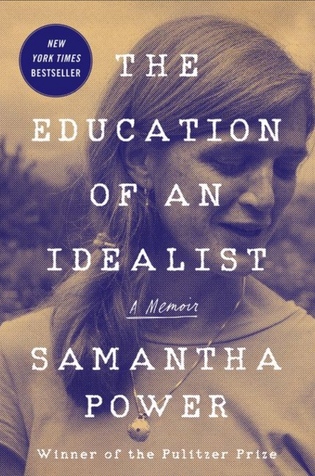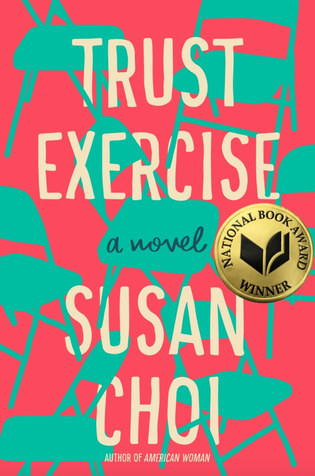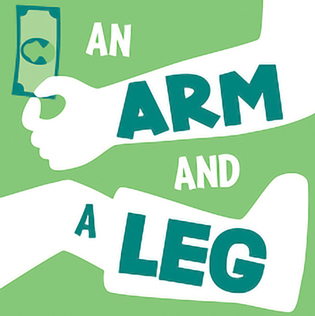 loading
loading
Arts & CultureReviews: March/April 2020Samantha Power's memoir, a prize-winning novel, a podcast about health care.  View full imageThe Education of an Idealist: A Memoir Born in Ireland, Power was nine when she came to the US with her younger brother and her mother, who emigrated to pursue specialized medical education and to escape an unhappy marriage with an alcoholic. The future UN ambassador threw herself into the work of becoming an American, learning to play baseball and losing her Irish accent through studious effort. When her mother took a job in Atlanta, Power saw, up close, the harm to human dignity when people are devalued. Her own high school, forced by a court to desegregate, became a battleground: some white parents mobilized against the plan, and many teachers and students expressed racism and hostility toward the new black students. In Ireland, she had learned “plenty about British occupiers’ attempts to trample Irish dignity.” This new experience in Atlanta was a painful lesson in understanding the many forms oppression takes. After graduating from Yale, Power became a journalist, writing about the genocide committed by Serbs against Bosnian Muslims. Driven to tell this story, she penned a Pulitzer Prize–winning book, A Problem from Hell: America and the Age of Genocide, in which she challenged US leaders who claimed a commitment to human rights yet had failed over and over to stop genocides. Later, Power served as a foreign-policy fellow to then-Senator Obama. She would go with him to the White House, and he would later nominate her as his second United Nations ambassador. Her book doesn’t neglect the personal details, especially the very particular challenges faced by mothers in high-level posts—such as trying to breastfeed a baby while cradling a secured phone on her shoulder so she could talk to Secretary of State John Kerry ’66. She also acknowledges the pain and doubt of watching some policies she had advocated result in setbacks, including in Syria and Libya. The book allows us to see the dialogue between her idealist younger self and the still morally righteous, but more tempered, official. Full of interesting anecdotes and personal details, the memoir is captivating. Power’s story provides a window on the serious challenges of articulating and implementing a coherent foreign policy. The world is complex, and even an idealist has to learn that reality.
 View full imageTrust Exercise David and Sarah are precocious teenage lovers at a high school for the performing arts in an unnamed Southern city. The drama of their brief youthful love affair plays out in front of their high school classmates, all of whom are in thrall to Mr. Kingsley, a charismatic, boundary-crossing drama teacher. An opening “trust exercise” has the students crawling around in the dark and touching what they bump into—the attendant sexual groping striking the participants as an acceptable classroom activity. The students similarly assent to Mr. Kingsley’s psychological invasions, which he casts as an effort to get at what is essential/wounded/real in the students, because acting is “responding with authentic emotion under made-up circumstances.” “Your life outside school isn’t any of his goddamn business,” Sarah’s mother says of Mr. Kingsley’s interference. “You know that, don’t you?” No, Sarah doesn’t and no, Mr. Kingsley, who freely exploits the students’ most personal experiences in and out of class, doesn’t either. Midway, the high school story is reframed and continued into the future with a frank acknowledgment that we are all the stars of our own life stories. Here, what seems like mere anger at being sidelined in high school—cast always as the lesser part, or not cast at all—turns to outrage at the lifelong fallout of bad behavior in the past. When, toward its end, the novel makes one final flip, the reader knows it’s going to be satisfying in a wholly different way from the first two sections of the book. No surprise that Choi, whose whip-smart writing recalls the fierce intelligence of Rachel Cusk, received the 2019 National Book Award for this novel. It’s a winner. Debra Spark is a professor at Colby College. Her most recent novel was Unknown Caller.  View full imageAn Arm and a Leg Each episode includes selections of interviews interwoven with Weissmann’s enthusiastic narration. Weissmann, who worked as an investigative reporter and feature writer before creating this podcast, is an appealing and unpretentious guide. He’s smart and funny and a touch goofy: after a woman describes being sent for what was likely an unnecessary X-ray, he comments, “Smelled like trouble. She started sniffing around.” When he expresses outrage or amazement, it feels honest and compelling. Inscrutable costs often go hand in hand with a breakdown of trust—a repeated theme through the show’s three seasons. In one episode, Weissmann tells of his own sticker shock when his $15 medication shot up to $720.69. He shopped around and discovered what seemed like utterly random pricing: $25 at Costco, $300 at CVS, $170 at a supermarket. It all comes down to pharmacy benefit managers, powerful middlemen who cut deals with manufacturers and pharmacies, seemingly on the client’s behalf. But the client has nothing to do with this deal. It’s all about making a profit.
The comment period has expired.
|
|